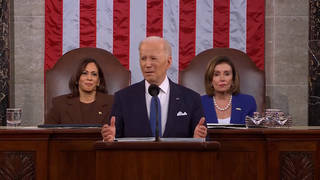
Topics
During the Gulf War, the role of oil was clear. Of all of the invasions and military occupations around the world,the U.S. chose to come to Kuwait’s rescue because Iraqi troops were knocking on the door of the U.S.’s largest sourceof oil in the Middle East: Saudi Arabia.
With the war in Afghanistan, the role of oil is murkier. There are no hostile troops posing a direct threat tofunctioning U.S. oil fields.
But there is a story to tell.
When the Soviet Union fell and the Central Asian Republics gained their independence, Western oil companies begantrying to find a way to export oil out of the land-locked central Asian countries. The U.S. oil giant Chevron, withthe support of the U.S. government, focused on Kazakhstan. Kazakhstan spent years trying to persuade Russia to allowChevron to transport oil through Russian pipelines to Europe.
The U.S. oil company Unocal chose instead to court the oil and natural gas-rich Turkmenistan. It has been locked ina ferocious and highly secretive battle with the Argentine oil company Bridas for years, in a bid to construct apipeline from Turkmenistan to Pakistan right through the heart of Afghanistan.
The U.S. government wasn’t interested in the Turkmenistan project at first, in large part because the pipeline’ssafety couldn’t be guaranteed: Afghanistan was in the midst of civil war. But gradually it became clear that Chevronwasn’t gaining ground in Kazakhstan. Unocal stepped up its pressure, hiring former top-level administrationofficials including Henry Kissinger and Zbignew Brzezinski to lobby the Clinton administration. And then, in 1996,the Taliban took Kabul. Washington thought that the Taliban might be able to conquer the rest of the country, andbring a stable, if incredibly repressive, government to the country. The U.S. began quietly, in the words ofPakistani journalist Ahmed Rashid, “romancing the Taliban.”
To put these pieces together, Rashid underwent “seven months of traveling, over one hundred interviews and totalimmersion in the literature of the oil business.”
Guest:
- Ahmed Rashid, correspondent for the Far Eastern Economic Review and author of the book ??Taliban:Militant Islam, Oil and Fundamentalism in Central Asia.











Media Options